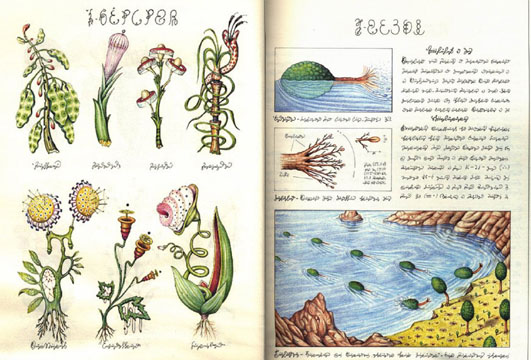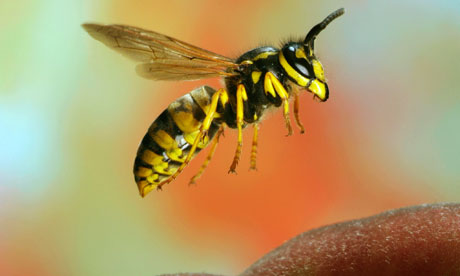Another of our irregular round-ups of things you might have missed. It’s been quite busy while I’ve not been concentrating over the last couple of weeks, so quite a long list today. As usual let’s start with the nerdy stuff.
A couple of week’s ago the 2013 IgNobel Prizes were announced. These are like the Nobel prizes only rather less serious. The IgNobels are awarded for research which makes one laugh and then stop to think, like the paper from Thai doctors on successes reattaching the human penis, unless it was eaten by a duck first. Scientific American has the full list of awards.
OK, enough of this jollity. Do you know how many mammalian viruses there are? No? Good, ‘cos neither do scientists, but they’re trying to work it out. Yes, this could be important for predicting future epidemics.
Another thing you didn’t know … Ten Trigonometry Functions Your Maths Teachers Never Taught You and why they used to be important.
Meanwhile NASA has confirmed that Voyager 1 (above) is boldly going where no probe has gone before. Yes, finally
Voyager has left the Solar System and entered interstellar space. My mind boggles every time I think about it, especially as I remember the first Sputnik being launched — and watching it passing over like a fast-moving star.
Back down to earth with a bump … Something else Scientists are investigating is the
microbes which live in our homes. And no, we really don’t have much of a clue about what’s where in our homes and there are some slight surprises.
Another piece of work being done by Rob Dunn’s amazing team is investigating the
biodiversity of what lives in our belly buttons. Here Rob talks a bit about how they do it.
Meanwhile an American High School teacher is using
Twitter as a teaching tool in the classroom.
Wow! It looks as if when we get right down to minute detail many people are real DNA mosaics: it turns out many more than was thought have two (or more) very
different versions of DNA. Something else which isn’t fully understood, but is somewhat mind boggling.
Did you know that whales’ ears are sealed? As a result it turns out that their accumulations of
earwax creates a complete record of their lives which (if you have a dead whale) can be read.
More usefully, here’s an interactive infographic detailing which so-called
superfoods are proven to be useful and which are more likely to be snake oil.
From snake oil to … spiders. It seems the
False Widow Spider is moving north as temperatures increase and is now spreading across southern England. Yes it has a nasty bite. No that is not a good reason to go round splatting every spider you see.
While we’re on
stings and bites, here’s a guy who appears to enjoy being stung by all manner of insects and taking some amazing photographs (example above) of them
in flagrante. Sooner him than me, tho’ I can, in a forensic way, see the fascination.
Oh no, not more insects! Question:
Why is it so hard to swat a housefly? Answer: Because it sees you coming in slow motion. Here’s the story of how it is thought to work. More mind boggling science!
Squirrels. You either love ’em or hate ’em. I love ’em but then I don’t live somewhere where
squirrels eat power lines.
As a cat lover I know that we have a
surprisingly complex relationship with our feline friends. Science is catching up and uncovering the details.
So we’re gradually drifting away from the science now. Ever wondered why you prefer the music you listened to as a teenager? Seems we have a “
reminiscence bump” during adolescence and early adulthood. Could also explain why we see our school and student days as so idyllic.
Moving on to the more political, here’s an piece which looks at both sides of
twelve arguments for and against HS2, the proposed high-speed rail link from London to the North of England.
Trains to planes … David Pogue looks at some of the many
mysteries of air travel.
Yet again scientists have confirmed what we all knew …
open plan offices are the pits.
Here’s Dom Knight on why he keeps
buying books — real books.
The Independent ran a piece which said what I have always maintained: that
legalising cannabis could bring benefits. If you legalise a commodity you can regulate it and tax it. Same applies to prostitutes.
We’re always being told there are rules about what, and what colours, we must/must not wear.
Are there really and rules about what to wear? No, I thought not!
And that even includes
wearing the niqab. I don’t like them, and I don’t like anyone being forced to wear one. But if they freely choose to, then that surely is their freedom. Heresy Corner contributes to the debate.

Starting last week the British Museum is showing an exhibition of shunga,
historic Japanese erotic prints. It looks like a “must see”. It is on until 5 January 2014. [Under 16s only if accompanied by paying adult; parental guidance advised.]
From old Japanese sex to new Swedish sex … A Swedish court has apparently ruled that
masturbation in public is legal as long as the act is not targeted at a specific individual. I don’t have a problem with that, but it does take a bit of getting the head round.
Meanwhile here in the UK the CPS has issued some long-overdue and sensible
guidance on the prosecution of public nudity. And it is actually readable!
After all of which are you ready for
Crackanory? The brilliant Harry Enfield returns with a twisted (adult) spin on children’s classic storytelling show Jackanory.
That’s all folks!

 Here’s a round-up of ten extraordinary sacred sites from around Britain.
Here’s a round-up of ten extraordinary sacred sites from around Britain.










